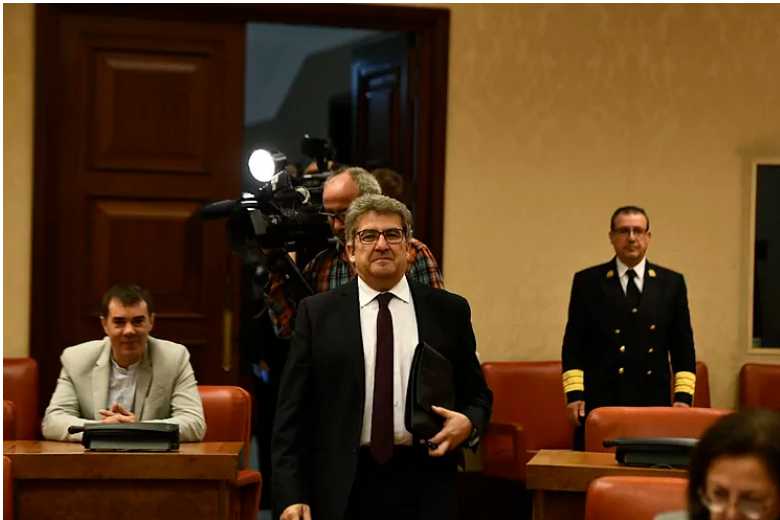The National Court yesterday notified a resolution that called into question the barrier that separates dozens of ETA prisoners from access to exit permits. An order from the Section that reviews all prison resources agreed with Gorka Loran Lafourcade and granted him the permission that the central prison surveillance judge had denied him.
The resolution considered valid a letter from the inmate in which he lamented the damage caused by the band, but did not ask for the express forgiveness of the victims that the court has been requiring to grant permits. The order written by the magistrate José Ricardo de Prada maintained that this writing should favor his freedom.
The resolution was also signed by the president of the court, Francisco Javier Vieira, and the magistrate María Fernanda García. But to that order signed on Monday, the president added another resolution signed yesterday: a particular vote. The magistrate does not question the granting of the permit, but he does question the thesis that this letter – and therefore similar ones from other ETA members – is worth obtaining benefits.
“The absence in that letter of an explicit condemnation of the terrorist organization of which the inmate was a part does not allow us to affirm, as the order does, that it is expressive of a firm and repentant position in the face of violence and the crimes committed,” he says. .
“Unlike other members of ETA who in the past have shown their total disassociation from the terrorist group and the objectives it pursued, the inmate does not demonstrate with this letter the total disapproval of the use of terrorism as a means of achieving objectives,” Add.
In the letter, which he did not write until the surveillance judge denied him permission, the ETA member stated that he felt “the pain of all the victims that ETA caused.” “A pain and suffering that I deeply regret,” he said.
After insisting that the law does not require a request for forgiveness, De Prada affirmed that “a positive criticism” should be made of these types of letters, “in the face of the distrust” with which they had been received.
Against this thesis, the president of the court affirms that “the doubt about his real internal feelings that the terms used by the inmate convey must be recorded.”
Loran Lafourcade was sentenced to 20 years for placing explosives on a train that covered the Irún-Madrid route. He has a year and a half left to complete, a valued fact to grant permission.
The clash between the two magistrates around a key element for the granting of permits comes a few weeks after De Prada has joined, at his own request, the First Section. This is the court in whose hands are the permits and third degrees granted to ETA prisoners.
The arrival of the magistrate caused concern in the victims’ associations, who consider that he has always been inclined to welcome the theses of those accused or already convicted of terrorism.
The first orders issued by the section with the new composition will serve to set the guidelines for the permits granted or denied by the Penitentiary Surveillance judge.
Conforms to The Trust Project criteria
















